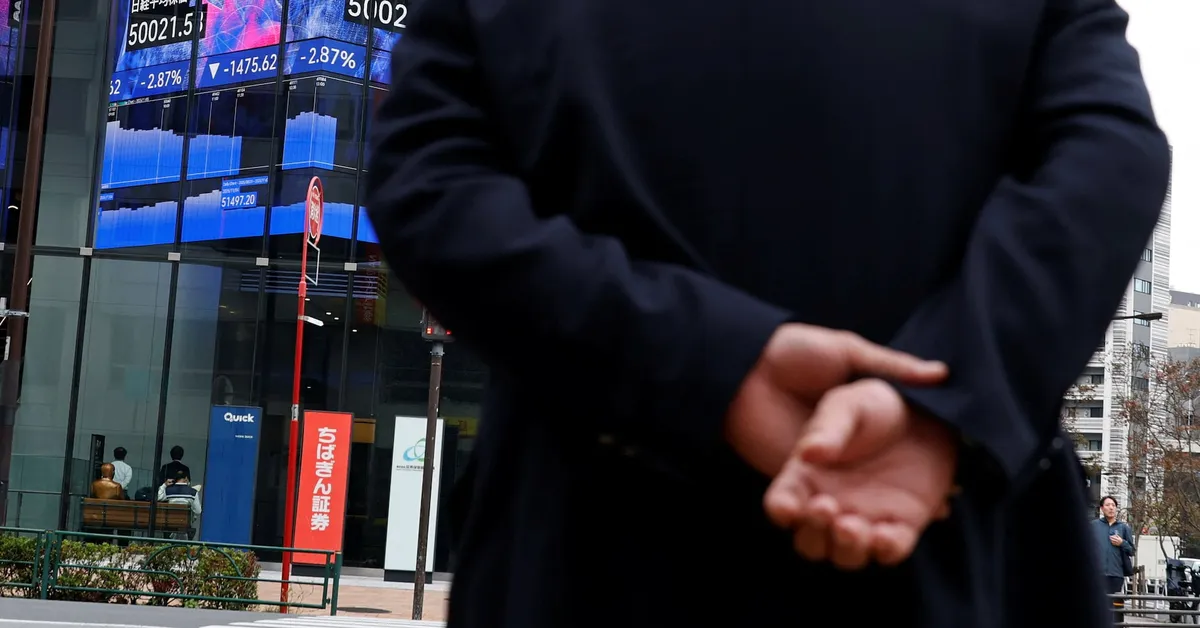
Asian stocks experienced a significant decline on Wednesday, with market volatility surging to levels not seen since April. This downturn followed a tech-led selloff on Wall Street that raised concerns over stretched valuations in the equity market. Jason Wong, a senior market strategist at BNZ in Wellington, commented, "It's probably just time to take pause on the equity market rally we've had. It's been all one-way for a while."
Chris Weston, head of research at Pepperstone Group in Melbourne, echoed this sentiment, stating, "It’s a sea of red across broad markets." Investors are now grappling with the reality that the impressive rally may be facing a significant test.
Despite previously reaching record highs, stocks are now retreating amid persistent challenges, including sticky inflation, elevated interest rates, a prolonged shutdown of the U.S. government, and trade uncertainties driven by tariffs. The market's reaction to a better-than-expected revenue report and improved outlook from data and AI company Palantir Technologies exemplified the emerging doubts about the rally's sustainability. Palantir's stock plummeted 8%, and even after hours, it fell an additional 3% in New York, although it remains up over 150% year-to-date in 2025.
Palantir is currently trading at nearly 250 times its 12-month forward earnings estimates, a stark contrast to AI chip frontrunner Nvidia, which stands at 33 times. Matt Simpson, a senior market analyst at StoneX in Brisbane, remarked, "At some point, profits need to be booked. Especially when we've seen repeatedly solid runs to record highs."
In currency markets, the U.S. dollar dipped 0.2% against the yen, settling at 153.36 after the release of the minutes from the Bank of Japan's September policy meeting. The dollar index, which measures the greenback against a basket of major currencies, retreated after reaching a five-month high of 100.25.
Additionally, the yield on benchmark 10-year Treasury notes decreased slightly to 4.058%, compared to Tuesday's close of 4.091%. In the cryptocurrency market, Bitcoin fell below $100,000 for the first time since June but later showed signs of volatility, last trading up 1% at $101,233.90.
Gold prices rebounded after three consecutive days of losses, trading 0.2% higher at $3,938.54 per ounce. Meanwhile, the European single currency remained steady at $1.1487, having previously hit a three-month low after five straight days of declines. In the oil markets, Brent crude saw a 0.6% decline, last recorded at $64.05 per barrel.
This tumultuous trading environment reflects the ongoing uncertainties and challenges facing investors as they navigate the complexities of the current economic landscape.